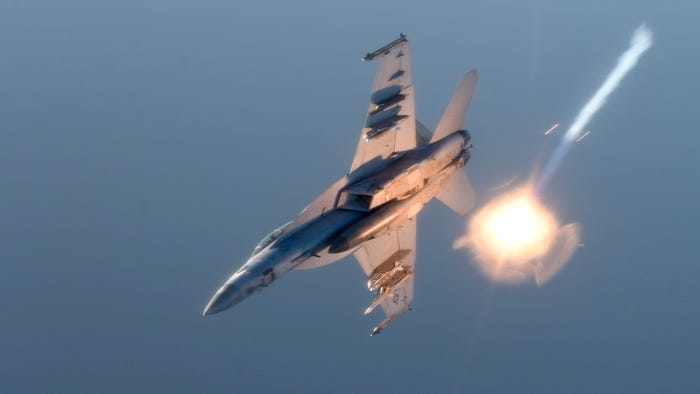US Navy Strips Parts from Jets, Subs Amid Repair Crisis

URGENT UPDATE: The US Navy is urgently stripping parts from F/A-18 Super Hornets and Virginia-class submarines to keep other aircraft and vessels operational, according to a newly released report from the Government Accountability Office (GAO). The situation has reached a critical point, with maintenance delays and parts shortages threatening the Navy’s operational readiness.
The GAO’s report outlines significant challenges faced by the Navy, revealing that technicians are resorting to cannibalizing grounded aircraft and submarines due to extensive delays in obtaining necessary parts. This alarming practice underscores the constraints of a stretched supply chain and a reliance on sole-source contracts for critical components.
Notably, the F/A-18 Super Hornets are struggling with a lack of data rights for essential parts, such as radio frequency cables. Navy maintainers have been unable to secure these rights from a vendor for over a decade, forcing them to wait on the vendor’s timeline for repairs. The report highlights that effective maintenance is often dictated by the vendor’s schedule, amplifying the risk of operational unavailability.
Similarly, Virginia-class submarines face a dire situation where certain components are difficult to procure. The GAO states, “If OEMs do not deliver spare parts in a timely manner, maintainers must cannibalize parts from another submarine until replacements arrive.” This reliance on cannibalization increases repair costs and exacerbates the workload for Navy personnel.
The implications are severe. Removing critical parts renders aircraft and submarines inoperative until replacements are sourced, leading to potential gaps in maritime and aerial defense capabilities. The Navy’s operational readiness is being compromised, placing sailors at greater risk and undermining national security.
The report also examined other major programs, including the F-35 Lightning II, Littoral Combat Ship, and Stryker, all of which face similar challenges stemming from dependency on commercial vendors for technical data. The F-35, in particular, is grappling with significant corrosion issues that can only be addressed with contractor support. This has resulted in extended repair timelines, further straining resources and operational capacity.
In a striking example, a broken hydraulic motor on the Littoral Combat Ship required a two-and-a-half-week wait for the original equipment manufacturer to conduct repairs. The GAO reported that such delays are becoming increasingly common across all five programs reviewed.
The report also mentioned the Stryker, which is facing a $534 million technical support contract due to the inability to secure unlimited data rights for the base vehicle. This financial burden adds to the challenges of maintaining a capable and ready fleet.
The GAO’s findings underscore the urgent need for the Pentagon to secure necessary technical data and rights to ensure the longevity and reliability of these critical defense systems. Without this data, the Navy’s ability to maintain its fleet and respond effectively to threats is severely jeopardized.
As the Navy grapples with these critical issues, the call for immediate action is clear. Officials must address the systemic challenges in parts procurement and maintenance to restore operational readiness and safeguard national defense interests.
Stay tuned for further updates on this developing situation as the Navy works to resolve these pressing challenges.






